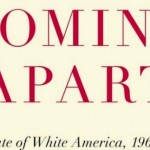The Independent just reported that “religious people are less intelligent.” Whatever remains of the “new atheist” crowd will argue that this study proves that education causes one to reject religion. Atheism is academic. Being enlightened or “bright” means you reject that dim-witted dogmatism of your fathers.
The problem is, of course, that secularism has long been dominant in the academy. Take a group of impressionable young students— selected specifically for their intelligence—who care very dearly about academic approval, and then tell them all the institutions known for intelligence are irreligious. What would you expect besides a correlation between intelligence and atheism to develop over time?
The key matter here is this: intelligent people don’t simply reject religion because it’s wrong; they reject it because they are socialized to think it’s wrong. Most students don’t know the basic tenets of various world religions (even at a place like Harvard!). I’ve met many atheists who can’t tell me why they believe in evolution besides a dogmatic appeal to “it’s just science”—a blatant appeal to authority little different than that of religious creationists. Most people develop their beliefs due to social influence and not necessarily or just from intellectual investigation.
As Oxford philosopher Charles Taylor describes it in his magnus opus, our society has shifted toward a secular age, which “consists, among other things, of a move from a society where belief in God is unchallenged and indeed, unproblematic, to one in which it is understood to be one option among others, and frequently not the easiest to embrace.” This transition happened first among the intelligensia.
Not convinced? Jean Bethke Elshtain, a political philosopher from the University of Chicago who recently passed at age 72, said as much during a talk she gave at The Veritas Forum at Harvard a few months ago:
I had slowly but surely inched over to join the company of those who chided those who believed. I decided I was not gullible, like those folks, and if they wanted to cling to wishful thinking, they could certainly do that, but I was at university, after all, where I had learned skepticism, and indeed I had decided that I had become a skeptic myself, joining most of my professors in that designation.
These words, though describing her experience some fifty years ago, sounds like it could come straight from the mouth of a college student today. This narrative— pursuing academic study and joining the skeptical, bright ranks—hasn’t changed much since the days of Bertrand Russell in spite of Christianity’s rich intellectual history and the fact that 80% of professors have some form of spiritual belief.
Interestingly enough, however, this may be changing. The Independent notes, “The level of belief, or otherwise, did however vary dependent upon age with the correlation found to be weakest among the pre-college population.” Contrary to popular belief, studies now show that those who go to college are more likely to maintain higher levels of religiosity than those who don’t. Notre Dame Sociologist Christian Smith attributes this to the work of Christian campus ministries, like Cru, Intervarsity, the Navigators, and others. If the trend continues, we may start hearing “send your child to college to save their faith” in fifty years.
Hopefully, if that’s the case, we’ll see just as many stories about it as we do today about religion being correlated with a lack of intelligence. Journalists, after all, tend to have high IQ scores.
[Image of Stained Glass Window from Wikipedia]
The language of this post has been slightly reworked to more accurately reflect the study’s data. As I reviewed the data, I discovered that education made no statistical difference in religious practice (apart from intelligence in general). This indicates that my hypothesis around socialization through attending university was inaccurate, but the basic point that socialization is part of a narrative about religion and intelligence remains. I’ve expanded on this more in a recent CT piece.
















